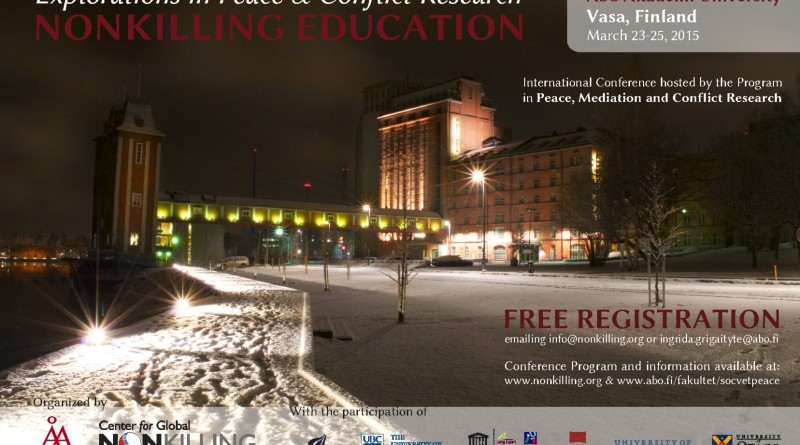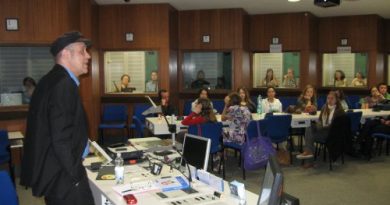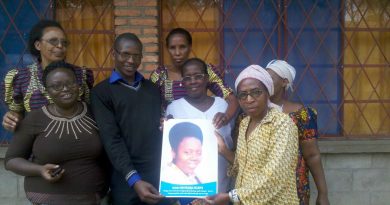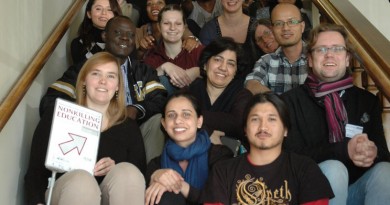Conference on Nonkilling Education in Vasa, Finland
Åbo Akademi University in Vasa, home of the Programme in Peace, Mediation and Conflict Research, will co-organize with the Center for Global Nonkilling, a exploratory interdisciplinary conference on March 23-25, 2015 focusing on the role and potential of education in bringing about a killing-free world. The event will bring toghether scholars and practitioners in the fields of education, anthropology, psychology, political science and philosophy to promote a creative exchange of ideas. Registration is free (emailing info@nonkilling.org or ingrida.grigaityte@abo.fi) and a provisional program can be downloaded here.
Focus
- Poor education as a causal factor of killing and violent behavior
- The educational consequences of violent environments and potential benefits of moving toward killing free societies (with no killing, threats to kill or conditions conducive to killing), and
- The educational measures and transformations relevant to building societies where human killing is greatly reduced and eventually absent.
A preliminary list of discussion topics include:
- The educational aspects of transition to a killing-free society
- What can we learn from peaceful societies, namely simple hunter-gatherers, in terms of parenting, early childhood development and educational practices?
- Can we deconstruct the different types of violence (direct, structural, cultural) that are reproduced in educational institutions as social subsystems and reconstruct peaceful/nonkilling educational paradigms?
- How to bridge the nonkilling approach with environmental education, ecojustice education, human rights education and indigenous-inspired education? How does this relate to extending nonkilling principles to respectful treatment of nonhuman animals and other forms of life?
- How does nonkilling education relate to strategies to decrease bullying and intolerance among school children to bring about discrimination and prejudice-free society are effective?
- What educational methods for teaching ethnically and religiously mixed classes in order to create culturally inclusive classroom environment are effective?
- Peaceful and dialogic-participative teaching methodology.
- Needed changes in undergraduate and graduate teacher training, textbooks, and research.




